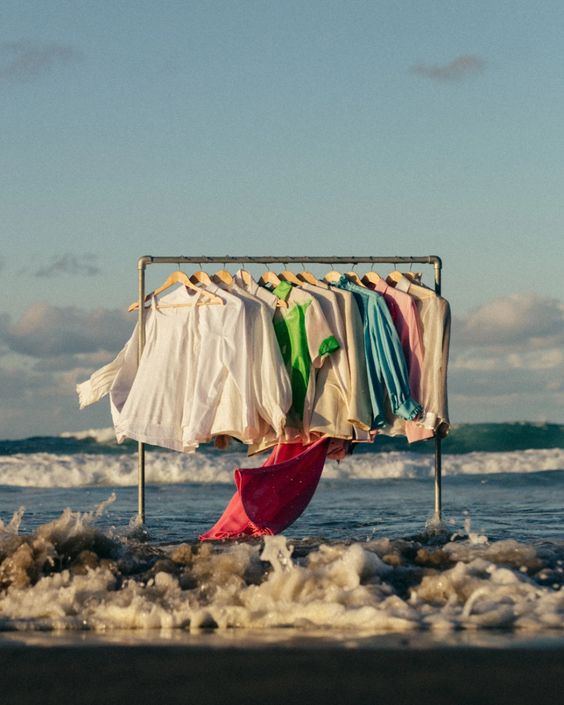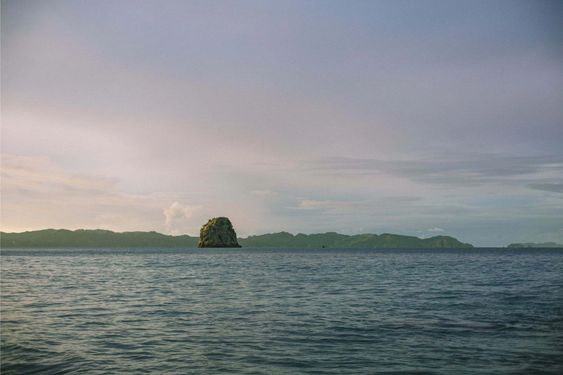Getting back to basics with Maggie Marilyn
10/12/2020
For New Zealand fashion wunderkind Maggie Hewitt, a timely change for her namesake brand has meant getting back to her “northern star” and finding a renewed sense of purpose in the process.

Words Elle McClure | Visuals Maggie Marilyn
When New Zealand label Maggie Marilyn — already beloved for its strong sartorial sensibilities and sustainable-mindedness alike — announced it was doing a 180 on its existing business model, it seemed to be the kind of pivot that might have been inspired by the Series of Unfortunate Events that has been 2020. Especially since its freshly launched offering is largely filled with the kind of quality essentials so many of us are gravitating toward as we shed the old normal for a new one. However the brand’s decision to eschew seasons, opt for evergreen lines, and retail directly via the brand’s own channels (their existing website, plus a newly opened store in Auckland, with no doubt more to come), are just some of several moves that have been in the works for almost two years.
But even then, the shifts are difficult to bookmark, considering the brand has always held high sustainability standards. Those have culminated in local production, the use of organic fabrics, and ensuring fair wages (among other applaudable efforts) since inception five years ago, and have meant it’s the kind of brand that figures such as Meghan Markle and Michelle Obama gravitate toward. As such, the brand has been considered a pioneer for what it means to be a business that operates with a conscience, and still finds immense success, along with stockists in the likes of Net-A-Porter and Farfetch. And while those retailers didn’t necessarily put MM on the map (we would argue Hewitt, all of 26 years wise, and her team did that of their own accord), they did help it reach more places on that map. So what makes a brand reverently pull back from its big name retailers to take things into its own hands? Ultimately, a desire to realign with its intended purpose, “to use fashion to create a better world.”
We’re excited to say that — true to the Maggie Marilyn ethos — a thoughtfully selected edit of pieces is now available for you to shop right here on Worn For Good. To celebrate its arrival, Elle McClure spoke to Maggie about doing things on her own terms, the need to lead with optimism, and how doing good makes getting up in the morning more fun.
Worn For Good: You’ve always been incredibly sustainably minded as a brand, but what was the catalyst for this change?
Maggie Hewitt: It’s really been such a journey to be honest, which I know sounds so cliched. It probably seems like this happened overnight, or happened because of Covid - and absolutely that was a consideration, in giving us more time to reflect on the business we wanted to build. But it’s been a journey of me graduating university, wanting to build a brand that puts people and the planet at the forefront of every decision, then getting in the industry, being on the hamster wheel, playing the game, trying to change the game a little, and then stepping back from it all. I thought: “If not now, then when? When will we ever be in a better position to make these big changes?” It took time to be brave enough to make the decision to go it on our own.
WFG: That must have been difficult, as a relatively small business. Did you have moments of doubt and second-guessing?
MH: Absolutely, all the time. When people say, “Oh this is a really big business move,” I’m like, “Yeah this is either really brave or really stupid, I guess we’ll find out.” It was incredibly difficult and nerve-wracking as a brand where we’re stocked with the best retailers in the world - who really helped to build our brand credentials and awareness globally - to say “we’re going to be stronger without them.” Who am I to say that we can make it without the likes of a Net-A-Porter? That’s crazy. There was so much inner turmoil to get to the point we were going to go it on our own, you have that push-pull inside you. But I kept coming back to our values and our mission as a brand: we’re in business to make a positive impact. I think when you have such a clear mission, you might not have a clear path, but that mission becomes your northern star, and so decision making becomes quite simple.
WFG: What has it meant for you in a short-term, practical sense?
MH: It’s so exciting to move closer to our customer. I think the thing people don’t really understand being a brand that works in the wholesale sphere is that when you’re selling to international retailers, there’s such a lack of trickle down communication between what the customer’s saying and what we’re receiving as a brand. And even though we’ve had our online store for a long time, there’s nothing like getting feedback in person, seeing what people gravitate toward, seeing what the product looks like on different body shapes and sizes. We’re calling our stores Homes because they really are brand homes, they’re where people can come and learn more about the brand. Educating the customer on shopping more consciously... that has the power to really trickle out to every aspect of their life.
WFG: What are you discovering about the Maggie Marilyn customer? Are you surprised by how engaged they are, or did you always know it?
MH: There’s a real mix to be honest, but that’s exciting. We have the customer who’s a real activist in her nature, and buys Maggie Marilyn because we align with her values, but then we have a customer who is still on their journey and we’re playing a part in educating them. They still might purchase from fast fashion brands as well, but that’s OK. Everyone’s in a different stage of their journey to living a more sustainable life. That’s important to us at Maggie Marilyn, that everyone feels accepted. It’s never, “Oh, you’re not doing enough.” We try to lead with optimism at the heart of what we do. Pushing people into fear can lead to “Oh well, what could I do as one person? So I won’t do anything.”
WFG: What’s the thing you think people would be most surprised to discover about the industry?
MH: I don’t think people outside of the rag trade are really aware of how complex the supply chain is. Even on a really simple product like a T-shirt; you don’t just have one person who grows that cotton and then it gets manufactured into a T-shirt. You’ve got the farmer who grows the cotton, and then it goes to get sorted, and spun into a yarn, and then woven into fabric, and then dyed, and then sent to a manufacturer to get cut, and then made into a garment. And that can be across different continents. There’s so many inefficiencies to growing a fibre in India and then it being sorted and processed in China, and then manufactured in Europe...
WFG: That seems crazy.
MH: It just doesn't make sense, but it’s quite common. As an industry, we don’t question things enough. It’s so easy to get on the hamster wheel of, “this is the way things have always been done so of course this is the way I should do it too.” But I’ve always been naturally inquisitive as a person and questioned, “but why do we do it this way?” Design in essence has always been about finding a solution to a problem, and business entrepreneurship is that as well - looking at a product or an industry and saying, “there’s a better way of doing this.”
WFG: What does that “better way” mean for you?
MH: Stepping away from this insatiable speed that fashion churns out clothing. Stepping away from seasons and the hamster wheel of having to produce newness just for the sake of it and not really producing products that you’re proud of. Telling a customer that in three months time, something goes on sale and that it’s worth less than when they first bought it? That’s just an idea that the industry made up to sell more product… that’s not true. For me a piece of clothing is worth just as much from when it leaves the factory floor to what it’s worth in 10 years’ time. I got to the point where I realised all of these industry rules don’t make sense. I don’t even know how we got here. All of this is just stepping back and reflecting - I think we’ll be so much stronger for it.
WFG: Would you like to see a similar kind of change in other businesses?
MH: I appreciate the challenges that slightly bigger businesses are in, to try and turn the ship around, and I really respect that there are so many lives at stake. As a business you employ people and you’re responsible for their livelihoods. That’s a big responsibility, so you can’t be too reckless. I think that just starting on the journey should be celebrated, because it’s not easy to couple being more responsible and also being commercially viable. I believe that the two have to co-exist, and they absolutely can, but it is daunting if your business wasn’t set up in that way.
WFG: What have these changes brought you from a personal perspective?
MH: I can’t even tell you how liberating it’s been. Credit where credit’s due, it has been incredible to be so young and picked up by the amazing retailers that we were. But there were immense challenges in trying to facilitate a global wholesale business from New Zealand. It’s liberating to be in the driver's seat. It’s liberating to have a purpose beyond just making beautiful things. Don’t get me wrong - I will never undervalue making a beautiful product and empowering the customer through that, I think clothing has so much power. But having a greater mission of wanting to make the world a better place just makes it more fun, you know? Getting up in the morning is more rewarding.






